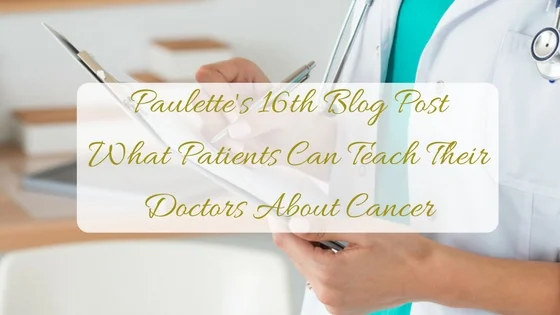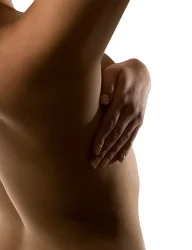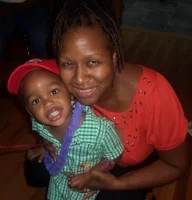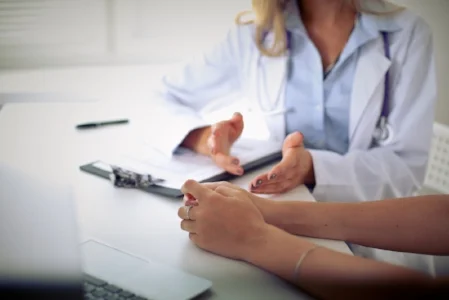Primary Care Physicians (PCPs) have a lot to learn about breast cancer - both early and late-stage. And guess who their teachers are? That’s right – WE ARE! I speak from personal experience on this one.
SEEKING A SECOND OPINION SAVED MY LIFE.
I was originally diagnosed with early-stage breast cancer in 2000 when I was 33 years old. Two years earlier in 1998, as part of the process to volunteer in Benin, West Africa, I underwent a physical exam. I clearly remember being examined by my gynecologist/PCP in Buffalo. When examining my breasts, she lingered on my right breast. I can still see her pressing around on it, saying that although she didn't feel any individual lumps, she felt what she thought was just excess fatty tissue throughout the breast. There I was. At 30 years old, I had never thought about cancer a day in my life and I was getting ready to fulfill a long-held dream of mine, so of course, I asked no further questions and didn’t worry about her remark for even a minute.
Let’s fast-forward two years, to September 2000. While in Benin, I found a lump in my right breast one morning after showering. Because of the substandard state of the medical system there, I waited until my November vacation to get it checked out. I saw the same doctor who had examined me two years prior. Even though there was now a discernable lump, her attitude was lax. She said that because I was young and there was no history of breast cancer in my family, I should just watch it and come back in six months. Although I had no experience with breast cancer, I knew enough to know that if you have a lump in your breast, the first thing you do is to get it checked out. It was shocking to me that my doctor did not advise me to have a mammogram.
I consulted with our long-time family doctor. He felt the lump, and his receptionist scheduled a mammogram for me at the local renowned cancer hospital, Roswell Park Cancer Institute, the very next day. He wasn’t playing around! That mammogram came back positive for cancer, of course, showing cancer present throughout my breast, and the rest is well-documented history. But, if I had followed the advice of my gynecologist and just waited for 6 months, I may not be here today. Also, looking back at 1998, when she thought there was simply too much fatty tissue in my breast, the right thing to do would have been to send me for further examination rather than simply dismiss it.
My experience these past seventeen years has taught me that breast cancer is no respecter of ages – women and men of any age can get it, regardless of family history. No one is too young! The well-known anti-terrorism slogan: “If you see something, say something” comes to mind here. I have a medical replacement for it: “If anything seems off, even if it’s just by a little, do something. Get it checked out right away.” When it comes to your health, never assume that nothing is wrong, because it could be something. It is better to catch a condition early or confirm that it really isn’t anything, rather than live for two years not knowing cancer is growing in your body because the doctor didn’t pay enough attention to what seemed amiss.
I AM COMMITTED TO LISTENING TO MY BODY.
Moving ahead to 2009, when I first started feeling pains in different places in my body, I was taking the maximum dose of Ibuprofen daily to manage the pain. It hurt for me to hold my then 2-year old son, and when I laid down it was excruciating for me to have him lie on my chest. I went to my PCP in New Haven to try to determine the cause. He sent me for an MRI, which didn’t show anything, so he released me with orders to get physical therapy and continue taking pain medication.
I knew this was not the right path. I continued doing research on my own, and I found another PCP in the New Haven area. He found the lump in my thyroid, ordered various tests and called me with the news that it was cancerous. He also ordered the scans that led to the news that my breast cancer had metastasized (spread) throughout my bones.
THE CANCER-FREE LABEL CAN BE MISLEADING.
At the Living Beyond Breast Cancer conference last month, I met a young woman with MBC whose doctor had treated her early-stage cancer and followed her for five years. On the fifth anniversary of her being cancer-free, her doctor gave her a certificate pronouncing her cancer-free for the rest of her life, along with flowers and balloons to celebrate. One and a half years later, my new friend was stunned to learn her breast cancer had returned, and that she now had metastatic breast cancer. Because of her doctor’s information, she had believed that she was home free and had no idea that breast cancer could ever return in her body.
YOU ARE YOUR OWN BEST ADVOCATE.
Sisters and brothers, we have our work cut out for us. It’s up to us to be advocates for our own bodies, and to teach our doctors what they may not have learned in medical school – that statistics and trends are no substitute for a real person sitting in your office with a health complaint.
The instances cited here are from my personal experience and reveal that the knowledge of many primary care doctors is limited to their own practice. While doctors undergo rigorous education to get to where they are, and many are excellent practitioners, we patients play a pivotal role in helping to educate them about the broad horizons of breast cancer. Our doctors do not live our lives; we do. We know our bodies, and we know when something feels not quite right.
NEVER be afraid to let your doctor know what you need from them. ALWAYS make sure your doctor hears your voice. You are the most important person making the decision about your health care – your doctor is your advisor. Make your voice heard; it might just change your life. See you next week.




